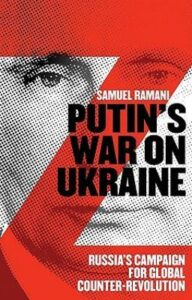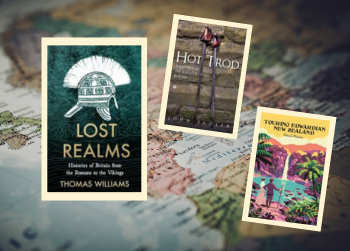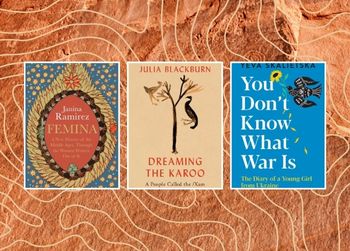Borders define us. While giving us a sense of identity, they also separate us and create large divides prone to warfare and strife, of misunderstanding and incompatibility. With this selection of new books, we dive into the imaginary and natural lines that define a place, a person. We look at the way a map weaves together a nation and how identities are formed along these lines, how landmarks natural and manmade direct our future. Inseparable from these tangible borders are the borders between peoples – the divide between communities and the clashes that arise from defining ourselves by who we aren’t, instead of by simply by who we are.
Lost realms : histories of Britain from the Romans to the Vikings / Williams, Thomas J. T.
Covering a period when the way Britain changed radically from the way it was run and organised to language, religious belief and practice and overseas contact, Williams looks to the warring kingdoms of the era. The world was local then, and many realms were forged but did not survive. Williams takes a single realm at a time to show how these kingdoms were formed and why they failed; how communities adapted in this era; and what the challenges were for the people and those searching to lead.” — Provided by publisher.” (Catalogue)
The hot trod : a history of the Anglo-Scottish border / Sadler, John
“‘Here are two peoples almost identical in blood – the same language and religion; and yet a few years of quarrelsome isolation have so separated their thoughts and ways that not unions nor mutual dangers, not steamers nor railways, seem able to obliterate the broad distinction.’ Robert Louis Stephenson” (Catalogue)
Beyond the wall : East Germany, 1949-1990 / Hoyer, Katja
For over forty years the GDR presented a radically different German identity to anything that had come before, and anything that exists today. Beginning with the bitter experience of German Marxists exiled by Hitler, Katja Hoyer traces the arc of the state they would go on to create and argues that amid oppression and frequent hardship, East Germany was yet home to a rich political, social and cultural landscape, a place far more dynamic than the Cold War caricature often painted in the West. (Adapted from Catalogue)
 Putin’s war on Ukraine : Russia’s campaign for global counter-revolution / Ramani, Samuel
Putin’s war on Ukraine : Russia’s campaign for global counter-revolution / Ramani, Samuel
“Samuel Ramani argues that Putin’s policy of global counter-revolution is driven not by systemic factors, such as preventing NATO expansion, but domestic ones: the desire to unite Russians around common principles and consolidate his personal brand of authoritarianism. This objective has inspired military interventions in Crimea, Donbas and Syria, and now all-out war against Kyiv. Ramani explores why Putin opted for regime change in Ukraine and considers the impact on his own regime’s legitimacy. How has Russia’s long-term political and foreign policy trajectory shifted? And how will the international response reshape the world order?”–Publisher’s description.” (Adapted from Catalogue)
A stranger in your own city : travels in the Middle East’s long war / Abdul-Ahad, Ghaith
“From the American invasion to the Arab Spring, ISIS and beyond, this book offers a remarkable de-centring of the West in the history and contemporary situation of the region. What comes to the fore is the effect on the ground: the human cost, the shifting allegiances, the generational change”–Publisher’s description.” (Catalogue)
Life on the Mississippi : an epic American adventure / Buck, Rinker
Building a wooden flatboat from the bygone era of the early 1800s, Rinker Buck casts off down the Mississippi river accompanied by an eccentric crew of daring shipmates. Like the Nile, the Thames, or the Seine before them, the western rivers in America fueled national growth. Buck resurrects the era’s adventurous spirit, but also challenges familiar myths about American expansion, confronting the bloody truth behind settlers’ push for land and wealth. Weaving together a tapestry of first-person histories, Buck portrays this watershed era of American expansion as it was really lived.” (Adapted from Catalogue)
Palestine 1936 : the great revolt and the roots of the Middle East conflict / Kessler, Oren
“The Great Arab Revolt of 1936 in the Holy Land lasted three years, cost thousands of lives-Jewish, British, and Arab-and cast the trajectory for the Middle East conflict ever since. It radicalized the Jewish and Arab communities and made the separation permanent. This book reveals world-changing events through extraordinary people on all sides”– Provided by publisher.” (Catalogue)
Touring Edwardian New Zealand / Moon, Paul
“A fascinating insight into life in NZ at the turn of the 20th century and the evolving face of Aotearoa over time. The Edwardian era (1901-1910) marked a pivotal time in New Zealand’s history. In the main centres, the country had emerged as a modern, urbane and self-assured nation. In the hinterland, however, the ‘real’ NZ – wild, exotic and ‘Māori’- was still there, waiting to be discovered by the intrepid traveler. The book traces the routes taken by Edwardian visitors and provides a panorama of NZ in the first age of mass travel in the colony.”–Provided by publisher.” (Catalogue)
Koresh : the true story of David Koresh and the tragedy at Waco / Talty, Stephan
Drawing on first-time, exclusive interviews with Koresh’s family and survivors of the siege, Stephan Talty paints a psychological portrait of this infamous icon of the 1990s. Talty reveals how Koresh’s fixation on holy war, which would deliver the Davidians to their reward and confirm himself as Christ, collided with his paranoid obsession with firearms to destructive effect. Their deadly, 51-day standoff with the embattled FBI and ATF embodied an anti-government ethic that continues to resonate today. – Publisher.” (Adapted from Catalogue)
History of war in maps / Parker, Philip
“From the moment the first towns and cities arose, the competition for land, resources and power has often turned to violence. Almost from the start, maps have been an essential part of planning and waging war. Spanning more than 3,000 years, from ancient and medieval warfare to modern-day global conflicts, these maps tell the fascinating story of war”–Back cover.” (Adapted from Catalogue)



